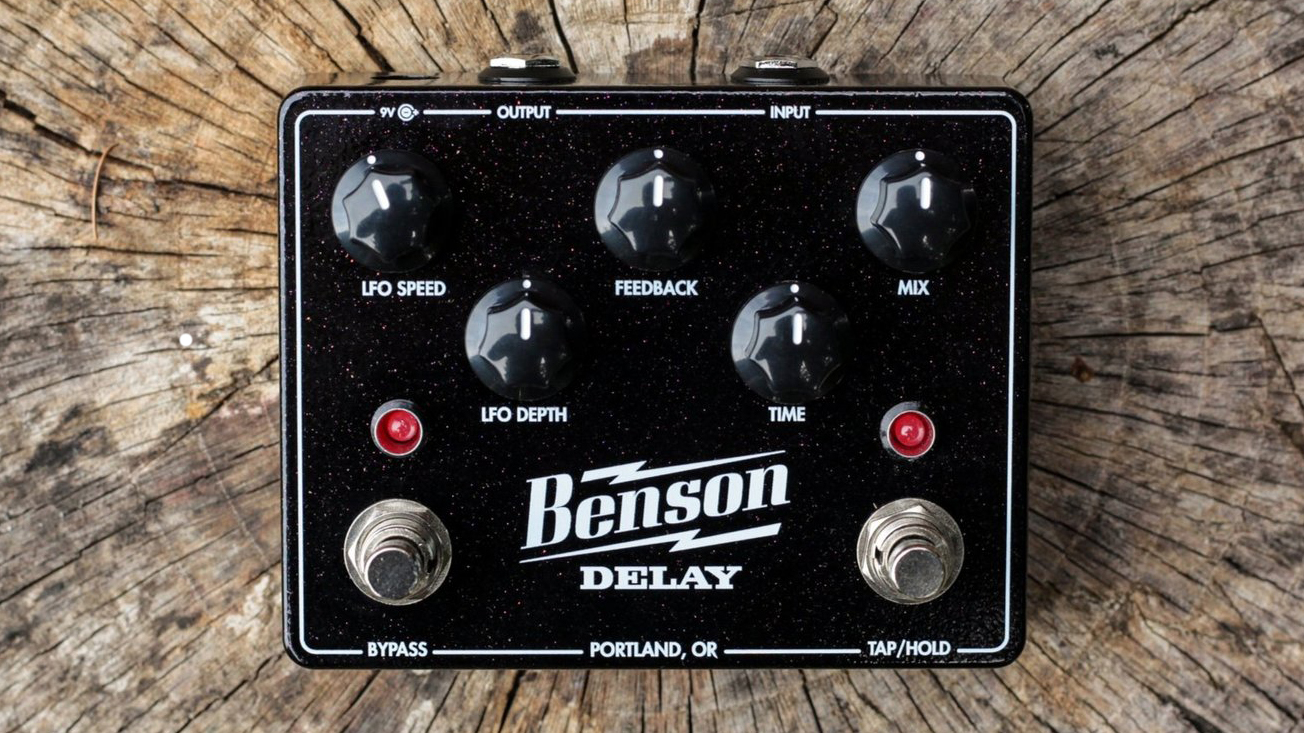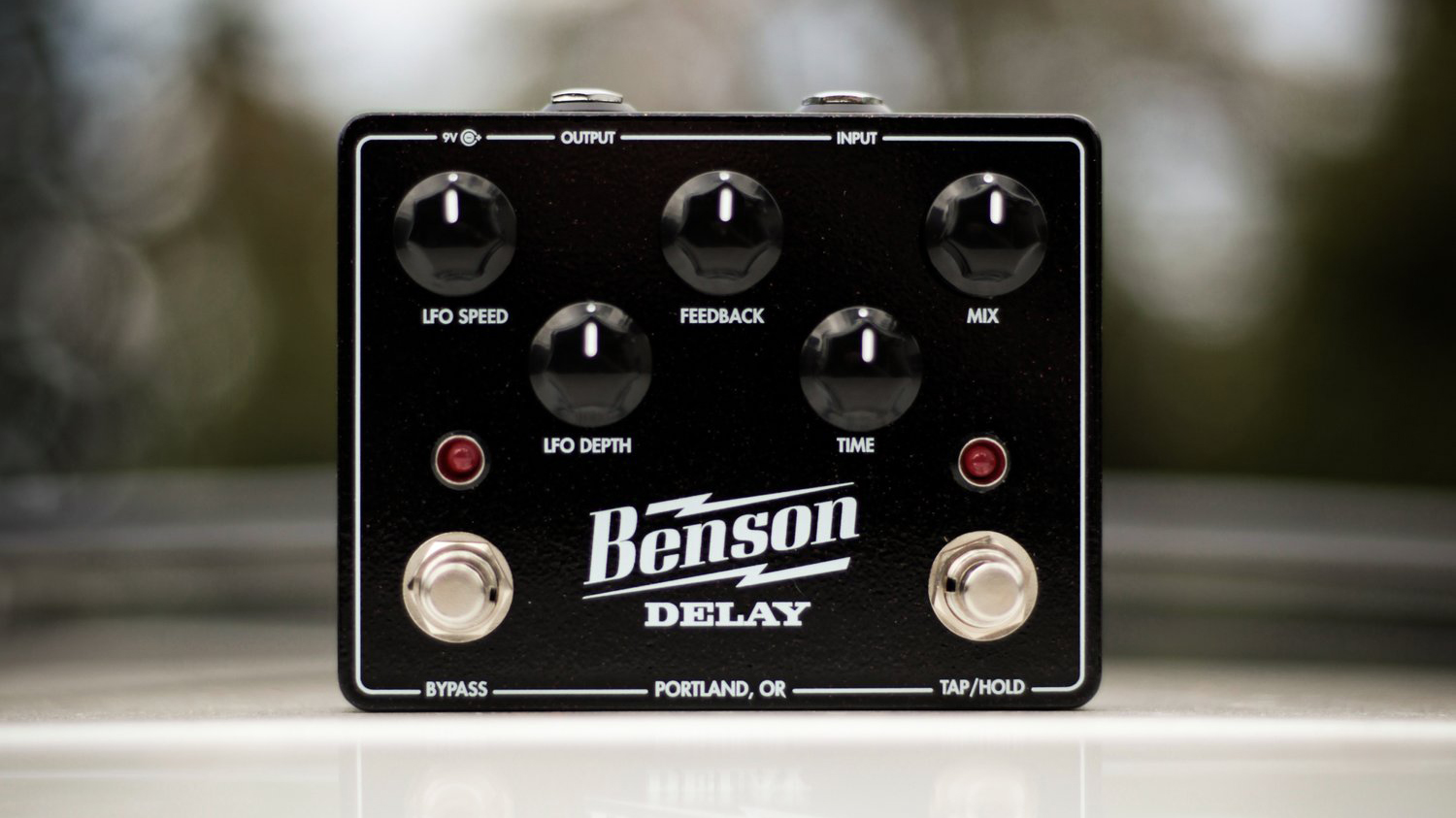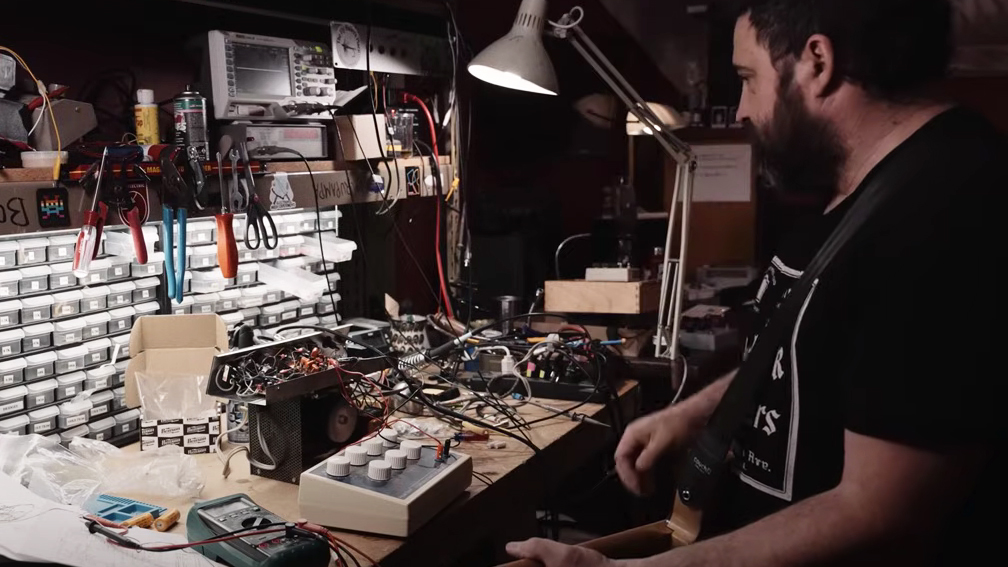
Want all the hottest music and gear news, reviews, deals, features and more, direct to your inbox? Sign up here.
You are now subscribed
Your newsletter sign-up was successful
What a time to be alive for repeat offenders – we're seeing some of the best delay pedals released in 2023, but away from the technological leaps of the Meris LVX, it's been a vintage year for analogue delay sounds. The main event for me so far has been the Boss DM-101 Delay Machine, a true BBD-loaded treat for analogue fans that has a lot of depth to explore. But the Strymon Brig proved a more affordable (and compact) digital offering could be very persuasive too. But the year isn't over, and now we have Benson…
It's simply called the Benson Delay. And at $279 / £289 it sits in a pretty sweet spot for true delay made in the USA. An investment for sure, but a great delay pedal has a way of making it an easier decision.
You're trying to strike a balance between noise, delay time and functionality
Chris Benson
And the potential is all here. Benson's Chris Benson began work on the pedal in 2019 and tells the story of its development in the video above. It reiterates the care and passion behind Chris's work, and what Benson was aiming to achieve here. But there were obstacles to overcome.
"I wanted it to go from super fast speeds and super slow speeds with one knob," explains Chris. "You're trying to strike a balance between noise, delay time and functionality. I wanted to incorporate an LFO and I wanted it to wiggle, and I wanted it to be pretty intense. And it wasn't happening with the buckets."
This realisation required a different approach, with what Chris calls the 'karaoke chip' – the PT2399. It's a single-chip echo processor utilising CMOS technology that was used in karaoke machines to add slapback vocal echo.

"I stuck that right where the bucket brigade chips actually went so all the associated circuitry was the same," explains Chris. "I realised I could get 1200 milliseconds [of delay time] out of it, relatively clean."
As Chris points out, the sound of a bucket brigade delay isn't usually the buckets themselves – it's the components the buckets are wrapped in; the compander (the compressor and expander) and the filtering after and before. "Buckets sound like gobbledegook without all that – and so does the PR2399," says Chris.
Want all the hottest music and gear news, reviews, deals, features and more, direct to your inbox? Sign up here.
Chris's mission with the pedal was ambitious but stemmed simply from a desire for a Benson delay pedal to deliver the features he liked and wanted to see in one unit.
"I wanted it to go fast enough to do chorus, I wanted it to go all-wet so it could be used for recording engineering, and I wanted to have a pretty fast onset for the feedback because I love making spaceships sounds, and I wanted a very versatile LFO."

The pedal certainly delivers on that aim with players able to select between sine, square and random LFOs for their delay pedals. He also integrated a "mathematically perfect" tap tempo. And for all you fans of "aliens landing" self-oscillation, Chris has you covered too. Turn the feedback up, hold down the tap button and it'll deliver. "Then you can use your toe to move the time knob gently and you can actually get different pitches in self-oscillation." Release the button and you're back to earth.
The result is a delay pedal that brings something genuinely compelling to the market with its range of features and analogue character.
"Basically I'm a very selfish guitar player and designer, and there's a lot of delays I've really loved over the years but none of them really had all of the features and/or sound that I wanted," concludes Chris. "That's why I made this."
More info at Benson Amps. Order in the UK at James' Home Of Tone , Andertons and in the US, Sweetwater

Rob is the Reviews Editor for GuitarWorld.com and MusicRadar guitars, so spends most of his waking hours (and beyond) thinking about and trying the latest gear while making sure our reviews team is giving you thorough and honest tests of it. He's worked for guitar mags and sites as a writer and editor for nearly 20 years but still winces at the thought of restringing anything with a Floyd Rose.